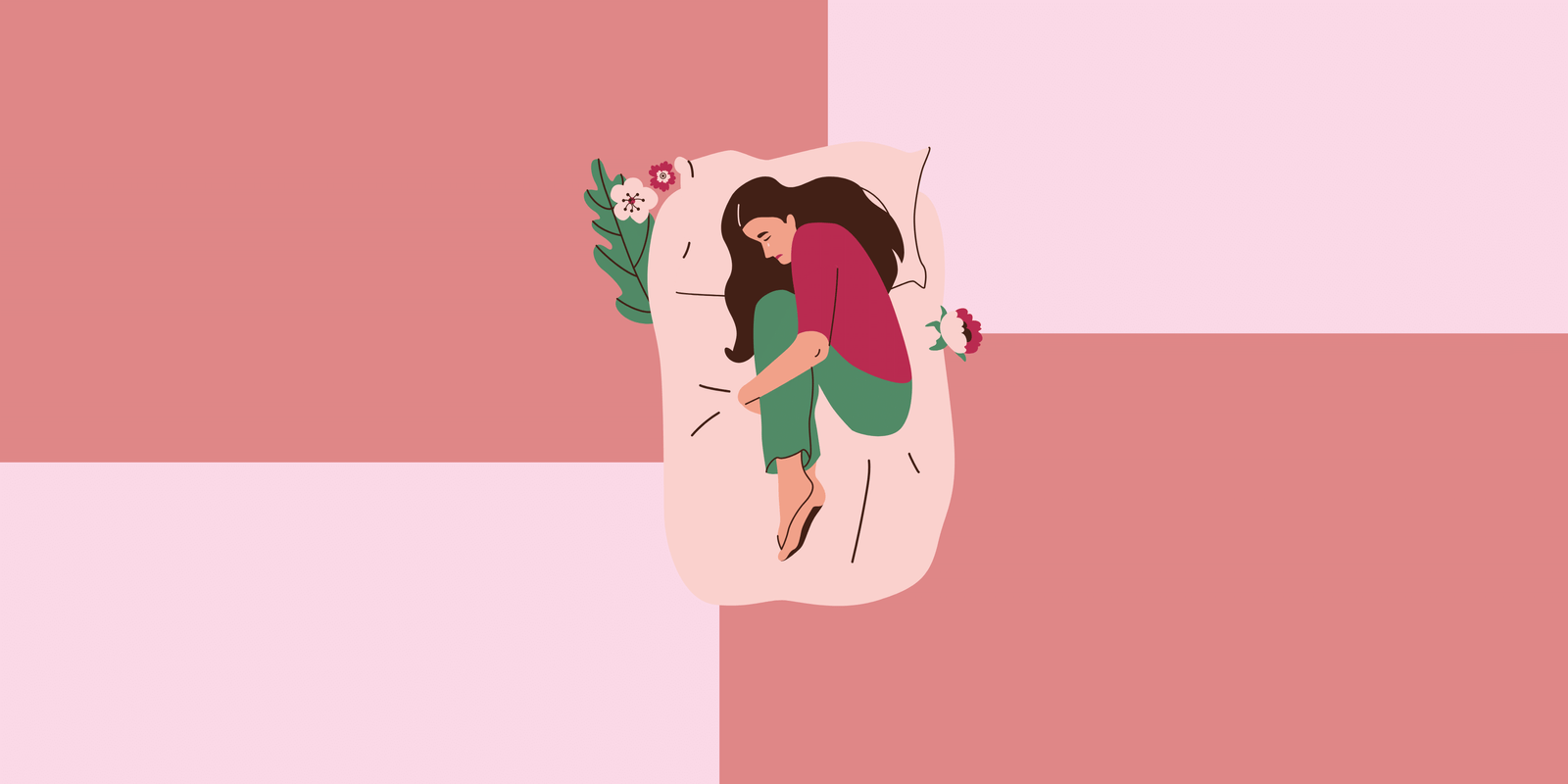Natural Ways to Regulate Your Menstrual Cycle
Understanding Your Menstrual Cycle: Before delving into natural remedies, it's essential to grasp the intricate workings of your menstrual cycle. This complex interplay of hormones, bodily processes, and external factors orchestrates the shedding of the uterine lining, known as menstruation. While the average menstrual cycle spans around 28 days, individual variations are common. Familiarizing yourself with the distinct phases of your menstrual cycle—menstruation, follicular phase, ovulation, and luteal phase—can offer valuable insights into your reproductive health.
Identifying Common Causes of Irregular Periods: Irregular menstruation can arise from a myriad of factors, ranging from hormonal imbalances to lifestyle choices and underlying health conditions. Hormonal fluctuations, often stemming from factors like puberty, menopause, or medication, can disrupt the natural rhythm of your cycle. Additionally, stress, poor dietary habits, lack of exercise, and environmental toxins can all play a role in menstrual irregularities. Recognizing these underlying causes is pivotal in devising effective solutions to restore menstrual regularity and promote overall well-being.
Exploring Natural Remedies: In the pursuit of hormonal balance and menstrual regularity, embracing natural remedies and lifestyle adjustments can be empowering. From nourishing your body with a nutrient-rich diet and engaging in regular exercise to prioritizing stress management and adequate sleep, there's a wealth of strategies at your disposal. Herbal supplements, mindful eating practices, and tracking your cycle can also complement these efforts. By incorporating these holistic approaches into your daily routine, you can embark on a journey towards reclaiming control over your menstrual health and enhancing your overall quality of life.
Understanding Your Menstrual Cycle
Before we dive into the natural remedies, let's take a moment to understand the menstrual cycle. Your menstrual cycle is a complex interplay of hormones, bodily processes, and environmental factors that culminate in the shedding of the uterine lining (menstruation). A typical menstrual cycle lasts approximately 28 days, although variations are common. Understanding the phases of your menstrual cycle – including menstruation, follicular phase, ovulation, and luteal phase – can provide valuable insights into your reproductive health.
Common Causes of Irregular Periods
Irregular periods can stem from various factors, including hormonal imbalances, stress, dietary habits, and underlying health conditions. Identifying the root cause of your irregular periods is the first step towards finding effective solutions. Let's explore some of the common culprits behind irregular menstrual cycles:
1. Hormonal Imbalances: Hormonal imbalances are a primary cause of irregular periods. Fluctuations in estrogen, progesterone, and other hormones can disrupt the normal menstrual cycle. Estrogen dominance, where estrogen levels are high relative to progesterone, or low levels of progesterone can both lead to irregularities in menstruation. Hormonal fluctuations can occur due to factors such as puberty, perimenopause, menopause, or certain medications.
2. Stress: Chronic stress can have a profound impact on hormonal balance, affecting the hypothalamus-pituitary-adrenal (HPA) axis and disrupting the menstrual cycle. High levels of stress hormones such as cortisol can suppress the release of reproductive hormones, leading to irregular periods or even the absence of menstruation altogether. Stress management techniques such as meditation, yoga, and deep breathing exercises can help mitigate these effects.
3. Poor Diet: A diet lacking in essential nutrients can interfere with hormone production and menstrual regularity. Nutrients such as iron, zinc, magnesium, and vitamin B6 are crucial for hormonal balance and reproductive health. Additionally, excessive consumption of processed foods, refined sugars, and unhealthy fats can contribute to inflammation and hormonal imbalances. Adopting a balanced diet rich in fruits, vegetables, whole grains, and lean proteins can support menstrual health.
:
4. Lack of Exercise: Regular physical activity is essential for maintaining hormonal balance and promoting a healthy menstrual cycle. Exercise helps regulate hormone levels, improve blood circulation, and reduce stress, all of which contribute to menstrual regularity. Sedentary lifestyles, on the other hand, can lead to hormonal imbalances and irregular periods. Aim for at least 30 minutes of moderate exercise most days of the week to support menstrual health.
5. Underlying Health Conditions:
- Polycystic Ovary Syndrome (PCOS): PCOS is a hormonal disorder characterized by elevated levels of androgens (male hormones), insulin resistance, and ovarian cysts. These hormonal imbalances can disrupt ovulation and lead to irregular or absent periods.
- Thyroid Disorders: Thyroid imbalances, such as hypothyroidism or hyperthyroidism, can impact menstrual regularity. Hypothyroidism, characterized by an underactive thyroid gland, can lead to heavier or more prolonged periods, while hyperthyroidism, an overactive thyroid gland, may cause lighter or irregular periods.
- Reproductive Disorders: Conditions such as endometriosis, uterine fibroids, and pelvic inflammatory disease (PID) can also contribute to irregular periods. These conditions can interfere with the normal function of the reproductive organs and disrupt the menstrual cycle.
- Menopause Transition: As women approach menopause, hormonal fluctuations become more pronounced, leading to irregular periods and eventually the cessation of menstruation altogether. The transition to menopause, known as perimenopause, can span several years and is characterized by varying menstrual patterns.
- Medications: Certain medications, such as hormonal contraceptives, anticoagulants, and antidepressants, can affect menstrual regularity as a side effect. It's essential to discuss any changes in menstrual patterns with your healthcare provider, especially if they coincide with starting a new medication.
6. Excessive Exercise: While regular exercise is beneficial for menstrual health, excessive or intense exercise can have the opposite effect. Intense physical training, particularly in endurance athletes, can lead to menstrual irregularities, including amenorrhea (absence of menstruation). This is often referred to as exercise-induced amenorrhea and is thought to result from energy imbalance and disruptions in the hypothalamic-pituitary-ovarian axis.
7. Sudden Weight Changes: Significant fluctuations in body weight, whether through rapid weight loss or gain, can disrupt hormonal balance and menstrual regularity. Low body weight, as seen in eating disorders such as anorexia nervosa, can lead to amenorrhea or irregular periods due to hormonal disturbances. Conversely, obesity and excess body fat can contribute to insulin resistance and hormonal imbalances, leading to irregular menstruation.
8. Sleep Disorders: Disrupted sleep patterns or sleep disorders such as insomnia or sleep apnea can impact hormonal regulation and menstrual regularity. Sleep deprivation can elevate stress hormones such as cortisol, which can disrupt the normal functioning of the reproductive system. Prioritizing quality sleep and establishing a consistent sleep routine can help support hormonal balance and menstrual health.
9. Alcohol Consumption: Excessive alcohol consumption can interfere with hormone production and metabolism, leading to menstrual irregularities. Alcohol affects the liver's ability to metabolize hormones, particularly estrogen, which can disrupt the menstrual cycle. Limiting alcohol intake and practicing moderation can help maintain hormonal balance and menstrual regularity.
10. Smoking: Smoking cigarettes can disrupt hormone levels and menstrual regularity. Nicotine and other chemicals in cigarettes can affect ovarian function and reduce estrogen levels, leading to irregular periods or amenorrhea. Quitting smoking can help restore hormonal balance and improve menstrual health.
11. Environmental Toxins: Exposure to environmental toxins such as endocrine-disrupting chemicals (EDCs) can interfere with hormone production and menstrual regularity. EDCs, found in plastics, pesticides, and household products, can mimic or block hormones in the body, leading to hormonal imbalances and reproductive disorders. Minimizing exposure to EDCs through lifestyle and environmental modifications can support menstrual health.
12. Psychological Factors: Psychological factors such as anxiety, depression, and trauma can impact hormonal regulation and menstrual regularity. Stressful life events or unresolved emotional issues can disrupt the hypothalamic-pituitary-adrenal (HPA) axis and interfere with the normal functioning of the reproductive system. Seeking support from mental health professionals and practicing stress management techniques can help mitigate these effects.
13. Irregular Sleep Schedule: Inconsistent sleep patterns or irregular sleep schedules can disrupt the body's internal clock, known as the circadian rhythm, and affect hormone production. Melatonin, a hormone involved in regulating sleep-wake cycles, also plays a role in menstrual regulation. Disrupted melatonin production due to irregular sleep patterns can impact menstrual regularity. Establishing a regular sleep routine and prioritizing sufficient sleep can support hormonal balance and menstrual health.
14. Birth Control Methods: Certain forms of birth control, such as hormonal contraceptives, can alter menstrual patterns and cause irregular bleeding. Hormonal contraceptives, including birth control pills, patches, and injections, work by suppressing ovulation and altering hormone levels. Irregular bleeding, including breakthrough bleeding or spotting, is a common side effect of hormonal contraceptives. It's essential to discuss any changes in menstrual patterns with your healthcare provider to ensure the chosen birth control method is suitable for your individual needs.
15. Age-related Changes: Age-related changes, such as puberty, perimenopause, and menopause, can cause fluctuations in hormone levels and menstrual patterns. During puberty, hormonal fluctuations as the reproductive system matures can lead to irregular periods. Similarly, during perimenopause, the transition to menopause, hormonal changes become more pronounced, leading to irregular periods and eventual cessation of menstruation. Understanding these age-related changes and their impact on menstrual health can help women navigate these transitions more effectively.
By identifying the underlying causes of irregular periods and addressing them through lifestyle modifications, dietary changes, stress management techniques, and medical interventions, women can take proactive steps towards achieving hormonal balance and menstrual regularity. Consulting with a healthcare provider is essential for proper diagnosis and personalized treatment planning tailored to individual needs and health goals. Remember, menstrual health is an integral part of overall well-being, and prioritizing it can lead to improved quality of life and reproductive health.
Natural Remedies to Regulate Your Menstrual Cycle
Now that we've explored some of the common causes of irregular periods, let's discuss natural remedies and lifestyle changes that can help regulate your menstrual cycle:
1. Healthy Diet:
- Incorporating a nutrient-rich diet is vital for supporting hormonal balance and menstrual regularity.
- Fruits, vegetables, whole grains, and lean proteins provide essential vitamins, minerals, and antioxidants necessary for optimal hormonal function.
- Limiting processed foods, sugary snacks, and caffeine can help stabilize blood sugar levels and prevent hormonal disruptions that may lead to irregular periods.
2. Regular Exercise:
- Engaging in moderate exercise on a regular basis supports hormone regulation and menstrual health.
- Activities like walking, swimming, or yoga can improve blood circulation, reduce stress levels, and promote overall well-being.
- Aim for at least 30 minutes of physical activity most days of the week to reap the benefits of exercise on menstrual regularity.
3. Stress Management:
- Chronic stress can negatively impact hormonal balance and menstrual cycles.
- Incorporating relaxation techniques such as deep breathing, meditation, or mindfulness can help reduce stress levels and promote hormonal equilibrium.
- Prioritizing self-care activities that bring joy and relaxation can also contribute to overall well-being and menstrual health.
4. Herbal Supplements:
- Certain herbal supplements like chasteberry, dong quai, or evening primrose oil are believed to support hormonal balance and menstrual health.
- However, it's essential to consult with a healthcare provider before starting any new supplements, especially if you have underlying health conditions or are taking medications, as they may interact with other treatments.
5. Adequate Sleep:
- Getting 7-9 hours of quality sleep per night is crucial for supporting hormonal regulation and overall health.
- Establishing a relaxing bedtime routine, creating a conducive sleep environment, and practicing good sleep hygiene can help improve sleep quality and promote menstrual regularity.
6. Hydration:
- Proper hydration is essential for maintaining hormonal balance and supporting overall health.
- Drinking plenty of water throughout the day helps flush out toxins, regulate body temperature, and support cellular function, all of which are important for hormonal health.
7. Limit Alcohol Intake:
- Excessive alcohol consumption can disrupt hormonal balance and interfere with menstrual regularity.
- Limiting alcohol intake or avoiding it altogether can help support a healthy menstrual cycle.
8. Maintain a Healthy Weight:
- Being underweight or overweight can affect hormone production and menstrual regularity.
- Strive to maintain a healthy weight through a balanced diet and regular exercise to support optimal hormonal function.
9. Reduce Caffeine Intake:
- High caffeine consumption has been associated with menstrual irregularities.
- Limiting caffeine intake from sources like coffee, tea, and energy drinks may help regulate your menstrual cycle.
10. Manage Blood Sugar Levels:
- Fluctuations in blood sugar levels can impact hormone balance and menstrual regularity.
- Eating regular meals and snacks containing complex carbohydrates, protein, and healthy fats can help stabilize blood sugar levels.
11. Avoid Smoking:
- Smoking has been linked to menstrual irregularities and reproductive health issues.
- Quitting smoking or avoiding exposure to secondhand smoke can improve hormonal balance and menstrual health.
12. Practice Mindful Eating:
- Paying attention to hunger and fullness cues, eating slowly, and savoring each bite can promote a healthy relationship with food and support hormonal balance.
13. Herbal Teas:
- Certain herbal teas like peppermint, ginger, or raspberry leaf are believed to have soothing effects on menstrual symptoms and hormonal balance.
14. Limit Processed Sugar:
- Excess consumption of processed sugar can lead to inflammation and hormonal imbalances.
- Choosing natural sweeteners like honey or maple syrup and reducing intake of sugary snacks can support menstrual health.
15. Track Your Cycle:
- Keeping a menstrual calendar or using a period tracking app can help you monitor your cycle and identify any irregularities or patterns.
Understanding and addressing the underlying causes of irregular periods is key to achieving hormonal balance and menstrual regularity. By recognizing factors such as hormonal imbalances, stress, dietary habits, and underlying health conditions, women can take proactive steps towards improving their reproductive health and overall well-being. Lifestyle modifications, including adopting a nutrient-rich diet, engaging in regular exercise, managing stress effectively, prioritizing adequate sleep, and avoiding harmful habits like smoking and excessive alcohol consumption, can all contribute to regulating the menstrual cycle naturally.
Take charge of your menstrual health today by incorporating these natural remedies and lifestyle changes into your daily routine. Consult with a healthcare provider to discuss any concerns or underlying health conditions that may be contributing to irregular periods. Remember, menstrual health is an integral part of overall well-being, and prioritizing it can lead to improved quality of life and reproductive health. Together, let's empower ourselves to reclaim control over our menstrual cycles and embrace a healthier, more balanced lifestyle.





